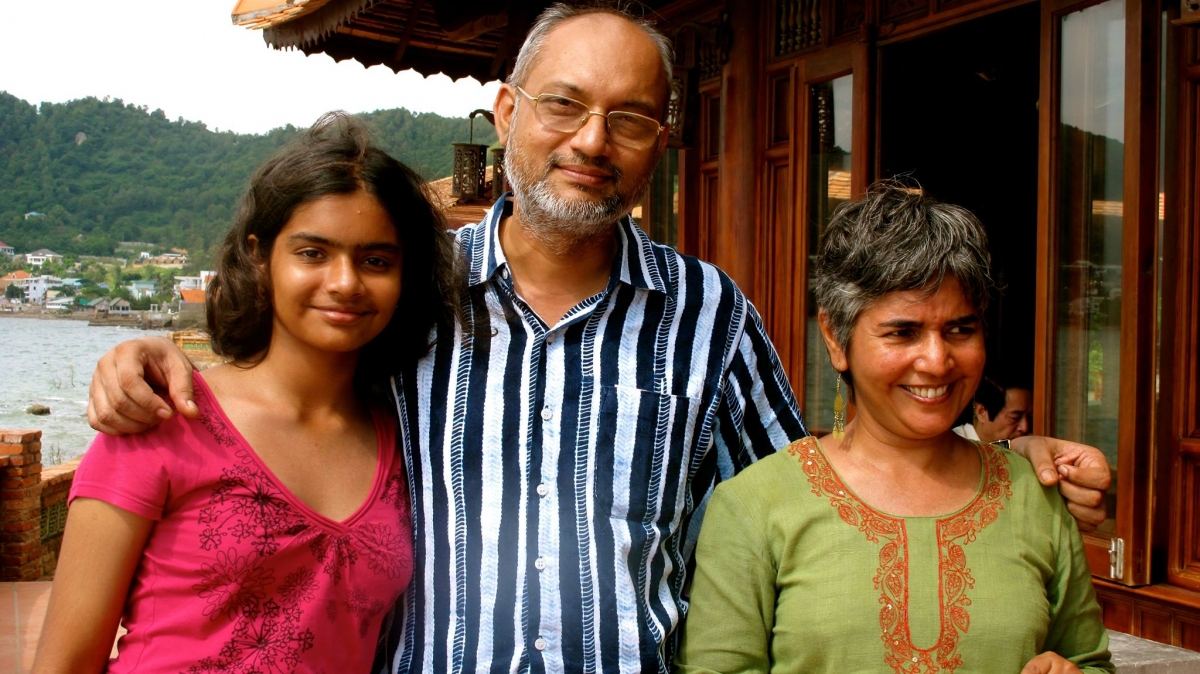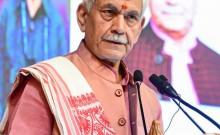KS Narendran exuded a quiet anger during a telephonic conversation on Tuesday, days after Malaysia declared MH370's disappearance was an accident and all 239 people on board were presumed dead.
Narendran's wife Chandrika Sharma was one of the passengers on the Malaysia Airlines flight on 8 March, 2014, when it veered into a mystery that still remains unresolved, close to its first anniversary.
On 29 January, Narendran received a call at about 11.30 a.m. IST, informing him of a press conference to be aired an hour later.
While the media-only meet was called off due to the presence of families seeking answers, the government played out a statement made by Azharuddin Abdul Rahman, the director-general of Department of Civil Aviation (DCA).
The DCA official had said: "After 327 days and based on all available data as well as circumstances mentioned earlier, survivability in the defined area is highly unlikely. It is therefore, with the heaviest heart and deepest sorrow that, on behalf of the Government of Malaysia, we officially declare Malaysia Airlines flight MH370 an accident in accordance with the Standards of Annexes 12 and 13 to the Chicago Convention and that all 239 of the passengers and crew onboard MH370 are presumed to have lost their lives".
The statement immediately sparked angry responses from families of passengers, with many demanding a retraction, claiming there is no evidence to term it as an accident and that the government was just giving up.
The Malaysian government defended the declaration as a step to help families receive compensation, which otherwise they would have to wait for till the plane was found or up to seven years when a missing person is declared dead.
But even as the world was caught by surprise at the declaration, Narendran said he and other kin of passengers had an inkling for a long time that the Malaysian government would sooner or later declare the disappearance of the plane to be an accident.
"It looks like the government had made up their mind last year itself to declare MH370 as an accident. As early as 24 March last year, days after the plane's disappearance, Prime Minister Najib Razak had said that MH370 had 'ended' its journey in the Indian Ocean, even when there was no incontrovertible evidence about the issue at that point," Narendran says.
"Even if they did have to make such a declaration, possibly under an international convention, why couldn't they wait at least till the first anniversary in March, when there would have been a sense of time having passed since the incident," says the 51-year-old Chennai resident, who lives with his mother after his 19-year-old daughter moved to Delhi for studies. "And if at all that had to make any declaration, they should have declared that they had failed."
He also dismisses any suggestion that the statement offers a closure to the families of those on board the flight.
What does it close? For me, everything is wide open and still muddled. We still don't know what happened, why it happened, who let it happen, and where the plane is. It looks like more than offering closure to families, the government and the airlines themselves wanted closure."
Narendran, however, says he is unsure about the call for retraction of the statement, and is instead looking for answers.
"If the declaration helps some families in terms of compensation, especially those who have lost breadwinners, then I can live with that. But this statement should in no way undermine the search and efforts to find out not only what happened to the plane, but also who is accountable for its loss," he says.
While Malaysian authorities have promised that compensation will be forwarded within three weeks of verification of documents, Narendran says he is in no hurry to tread that path.
"It is too early for me to seek compensation, because settlement of money is nothing without settlement of accountability. However, the pragmatics of the situation suggests that it is a step that cannot be overlooked. Closure is not only about finding the plane and the passengers, but about finding why it happened and who is responsible," he added.
Narendran and Chandrika would have marked their 25th marriage anniversary last November, while Chandrika would turn a year older on 30 March this year.
Narendran seeks more than just compensation for having lost his wife. He seeks to send a message so that this doesn't happen again.
"We should collectively inflict such a heavy price on the Malaysian government and the airlines that it will make other airlines and countries sit up and take notice, and not take passengers for granted," he says.
Narendran may not be the only one to think that flights have become a risky affair after the three air tragedies last year – MH370, MH17 and AirAsia QZ8501.
Although 2014 was stated as the safest year in civil aviation by the Aviation Safety Network in terms of the fewest number of fatal accidents, the year will have made a nervous flier out of everyone, especially as it closed with the AirAsia QZ8501 crashing into the Java Sea on 28 December.
When news of QZ8501 first emerged, Narendran tried to stay cut off from it.
"I initially tried to shut myself from anything about that news, until the point I could no longer avoid it. And then, when I looked at the difficulties in locating the plane and recovering the bodies, which is still not even halfway through, it just hit me harder that there was a strong possibility that MH370 may never ever be found," he says.
The AirAsia accident and the response and recovery just multiplied the odds of knowing what happened to MH370".
But Narendran says the accidents go on to prove a more important point – that assuring passengers of safety is still disregarded by airlines.
"The AirAsia accident just brought back to my mind how helpless we, as passengers, are when we board a flight, surrendering ourselves in the hands of a pilot whose experience is not even known to us," Narendran laments.
"It should become mandatory for airlines to regularly make public improvements in their safety procedures and to inform passengers about the experience profile of their pilots," he suggests.
Today, when Narendran takes a flight, he says he gets hyper-sensitive and anxious, and worries if the plane will reach its destination and if he will come out alive.
But taking a flight is more than just the common bout of anxiety for Narendran.
Every time I am in a flight, I reimagine what would have happened that day when Chandrika was on board MH370."



















